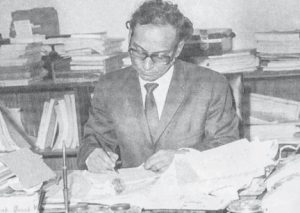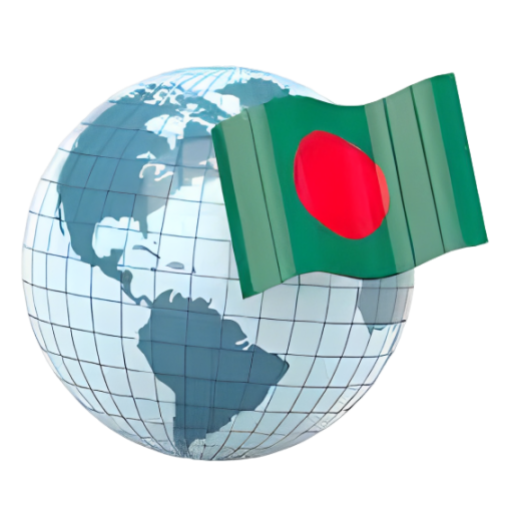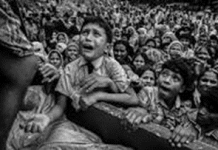Let me begin by sharing the tribute sent to me by Dr Kamal Hossain, a prominent jurist, to Professor Nurul Islam:
“Professor Nurul Islam earned wide respect both in Bangladesh and globally as a famous economist and a person of conscience. He took risks to support the cause of democracy and human rights in Bangladesh and beyond. He chose to use his extraordinary professional abilities for the benefit of Bangladesh and its people. He will remain a source of inspiration for all promising professionals because he made his professional skills available for just causes both nationally and internationally.
”Dr. Kamal Hossain (18 May, 2023)
By far the most distinguished economist of Bangladesh, Professor Nurul Islam, who described himself as an “the accidental economist”, breathed his last at the age of 94 on 9 May 2023 in Washington, D.C., United States.
My acquaintance with Professor Nurul Islam has been sporadic. I visited him once at his home in Washington DC many years ago. However, we got to know each other better, when I reached out to him in 2015 to inform him that he had received the Bangladesh Development Initiative’s (BDI) Lifetime Achievement Award – he was delighted to hear this and accepted our invitation to come to the BDI conference in at UC Berkeley to accept the award and serve as the keynote speaker.
Since then, we have had many conversations. I am sure he found me lacking in my knowledge of economics and history, and especially his own body of work. However, as an “honorary distinguished member” of Bangladesh Development Initiative, I kept him informed of our programmes, some of which he attended (remotely). Often technology seemed to be a barrier, but generally he was proficient in the use of his iPad to communicate with a host of former students, scholars and colleagues. He shared that he had suffered from poor eyesight much of his life. It is remarkable that until the end of his long life, in his 90s, he remained full of zest and vigour, with an impish sense of humour and a profound intellectual curiosity. Throughout his conversations, his love for Bangladesh was evident.
A brilliant economist
Professor Islam distinguished himself as the top student at all levels of his education, earning his B.A. and an M.A. in economics from Dhaka University (ranked first class, FIRST in both), and an M.A. and a Ph.D. in economics from Harvard University.
Prof. Islam held prestigious Fellowships at the London School of Economics, Cambridge, Oxford and the Netherlands School of Economics. Upon his return to Bangladesh (then East Pakistan), he was appointed an associate professor of economics, he taught and eventually Chaired the Department of Economics at Dhaka University. Among his twenty-nine books are: Development Planning in Bangladesh: A Study in Political Economy, published by UPL in 1979 reprinted in 1993; and Making of a Nation: Bangladesh — An Economist’s Tale, Dhaka, Bangladesh: UPL, 2003.
- In 2009, he received the Bangladesh Bank Award for his “original contributions to theoretical and applied development economics.”
- In 2013, he was honoured with the “BDI Lifetime Achievement Award.”
Professor Nurul Islam narrated his extra-ordinary life in a lucid manner in his An Odyssey: The Journey of My Life (2017), published by Prothoma Prakashana. His long-time colleague Professor Rehman Sobhan observed, “Nurul’s unique quality as a professional economist originated in the common sense and pragmatism which influenced his great faith in empirical work”.
Devoted to serving the nation
Professor Islam has remained active outside the world of academe. After serving as a professor and department chair, Dhaka University, he served as the first-ever “non-foreign” Director of the Pakistan Institute of Development Economics (PIDE). Once I asked him about his most significant contributions – he shared that moving PIDE to Dhaka was certainly something he was proud of. Upon liberation, he quickly returned to Bangladesh and served as the Founding Chairman of the Bangladesh Institute of Development Studies (BIDS); Appointed by Bangabandhu, recruiting a galaxy of brilliant economists as part of his team, he famously served as the Deputy Chairman/Minister, Bangladesh Planning Commission Ministry, Government of Bangladesh (1972–75).
His role as the Deputy Chairman of the Planning Commission of the newly established nation was critical and historic. Along with a distinguished cohort of fellow planners and economists, he led the group in planning to rebuild the nation after the massive and sustained destruction during the nine-month long liberation war.
Even before the war, he played an instrumental role among a core group of economists who had advised Bangabandhu Sk. Mujibur Rahman to make the “economic case” for an independent Bangladesh. As Professor Rehman Sobhan recounted, “He was particularly effective in bringing over to PIDE a younger generation of more talented Bangalee economists. Under Nurul’s leadership, this group of Bangalees at PIDE constituted a veritable think tank of policy ideas which fed the agendas for self-rule for East Pakistan and incubated further policy options for the germinating state of Bangladesh”.

Professor Nurul Islam in his office, as Deputy Chairman, Bangladesh Planning Commission in February 1973. Courtesy: The Business Standard (Dhaka), 1 January, 2021
International career
Professor Nurul Islam served as the Assistant Director-General, Economic and Social Policy Department, Food and Agriculture Organization (FAO). He joined International Food Policy Research Institute (IFPRI) in 1987 as Senior Policy Adviser to the Director General. He later became a Research Fellow Emeritus of the Institute and held this title until his death.
In remembering Professor Nurul Islam, his former colleagues at IFPRI recounted, “Nurul Islam played a major role at IFPRI for several decades, shaping research on the development of agriculture and food policy in Bangladesh and beyond. He was also a great mentor to many younger colleagues, leaving a significant personal imprint on the organization”.
Professor Nurul Islam was the Chairman of the UN Committee of Development Planning Policy; Member; and member of the Executive Committee, Third World Forum, 1974–77; Member, Executive Committee, International Economic Association (IEA), 1968–74; Treasurer, IEA, 1974–75. He also served on the editorial board of The World Economy (1977–80) and on the advisory committee of World Development (1977–97).
A concerned educationist
In an interview published in October 2019, Professor Nurul Islam shared his thoughts on the importance of maintaining high-quality education, and keeping the educational sector free from corruption for the future development of Bangladesh.
Q: In your view, what has prevented Bangladesh from doing even better over the past 20 years?
“… I am very concerned about the quality of education and lowering of the standards for getting a degree. This becomes a circular problem, and certainly one that will affect long-term development. For instance, when colleges and universities lower their standards for a degree, we produce teachers with poor knowledge and skills, who then do a poor job in teaching young students in elementary and secondary schools. It is like a pyramid – if the top is poor, the entire structure is adversely affected and this creates cumulative negative effects on development.”
Q: If you were in charge of development policymaking today, what policy would you first recommend for implementation?
“An overhaul of the education system to ensure high standards will be on top of my list. The education sector should be entirely free of politics, and based largely on merit. Today we are far from this model with the hiring and selection of faculty, deans and VCs being totally politicized. This is a disaster for the nation and will negatively impact long-term development. Note that in India, there are no student wings of the Congress Party or BJP, in the same way as we have in Bangladesh. Yes, student organizations with different policies and persuasions exist, but they are not associated with and have no organization linked to political parties.”
A pro-people economist
Throughout his long and distinguished career as an economist, researcher, social scientist and public intellectual, Professor Islam has worked tirelessly to uphold the welfare and interest of the people of Bangladesh. Through his many books, articles and speeches, he has contributed to a corpus of knowledge which has improved our understanding of economic theory and planning, poverty, the process of economic growth, and the role of politics in the developmental dynamic.
As Dr. Debapriya Bhattacharya summarized, “Professor Islam’s lasting legacy would not only be as an architect of the economic rationale for Independence but also as a development philosopher, practising academic, and institution builder”. During his long and illustrious career, Professor Nurul Islam broke many glass ceilings…he was a true pioneer. He has fully earned his reputation as one of world’s leading development scholars and practitioners.
_____________________________________________________________________________
This article is based on a presentation at an event organized by the Association for Economic and Development Studies on Bangladesh (AEDSB) on 19 May, 2023 to remember the extra-ordinary life and achievements of Professor Nurul Islam.

Munir Quddus serves as Dean of the College of Business at Prairie View A & M University in Texas. Under his leadership, the college received initial accreditation with the Association to Advance Collegiate Schools of Business (AACSB International) in spring 2006, a hallmark of excellence attained only by 10% of the business schools globally. Munir received his Ph.D. in economics from Vanderbilt University and has taught at various US universities. He played a critical role in establishing North South University, the first private university in Bangladesh. He has published widely on economic development, history of economic ideas and macroeconomics. His research on entrepreneurs in Bangladesh’s multibillion dollar garment export industry, led to interviews for an article published in The New York Times and on National Public Radio’s “Planet Money”. He is currently President of the Bangladesh Development Initiative (BDI) ‐ a research think tank and policy advocacy group ‐ and has served on an expert panel at the Heritage Foundation in Washington DC. He is on the editorial board of the Journal of Bangladesh Studies, the only scholarly journal in the U.S. devoted to Bangladesh Studies.






